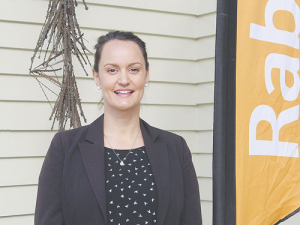The Global Dairy Trade had its eighth consecutive fall last week putting more downward pressure on Fonterra’s $6.75/kgMS milk price forecast, says BNZ senior economist Doug Steel.
Prices fell for most products, led by a 3.5% drop in cheese, and the overall GDT Price Index fell 1.3%, although this was not quite as negative as expected, Steel told Dairy News.
“The GDT price index has not yet posted an increase in the new season and we are three and a half months in,” he says.
While a lower NZ dollar (NZD) is partly offsetting falling international prices, the current GDT prices and currency levels would be more consistent with something in the low $6s, he says.
“Anything higher would likely need international prices to rise, or a lower NZD, or better-than-GDT prices being achieved for other sales.” There is some evidence the latter is occurring but “at present the clear risk to milk price forecasts remain downward including to our own $6.60 view”.
“In any case, the season still has a long way to go.”
Whole milk powder (WMP) prices fell 1.8% against the possibility of something closer to a 5% drop. Average prices sit at US$2768/t, a touch further below the RBNZ’s medium term view of US$3000/t.
RaboResearch dairy analyst Emma Higgins says last week’s result was again not what NZ dairy farmers were hoping for. The eighth consecutive fall, or flat result, means the average GDT price has lost pace by 19% in that time.
“Headline results are now at their lowest price since October 2016,” says Higgins.
“WMP volumes on offer increased by 20,450 tonnes (+3%) over the coming 12 months (with the extra product offered over the next few months) and with plenty of milk, ample product and expectations reflecting the choice available, buyers are remaining on the sidelines.
“Near-perfect winter and spring weather thus far… has provided a solid platform for a robust production season ahead, providing a level of comfort for buyers that there will be options aplenty, and capping prices.
“Digging into the numbers a bit more, the C2 (delivery date November 2018) weighted average price of US$2747/t is at its lowest price since August 2016... and further highlighting the lack of procurement urgency.”
Interestingly, there were extra volumes of WMP sold to buyers from North Asia (China) in this GDT event.
“China is approaching the period when buyers traditionally look to stock up on dairy in order to receive minimal tariff rates for a set volume under the NZ-China FTA from January 1.
“Importantly, from January 1, 2019 the first 162,482 tonnes of imported WMP and SMP from NZ will enter China free of tariffs (last year the first 154,745MT of product came in at a discounted 0.8% tariff rate). Additional production after the quota will be assigned a 10% tariff rate, hence the historical rush to stock up and ensure deliveries for early January. Watch this space for the coming GDT Events.”
Milk production in Europe is gaining momentum despite the heatwave that spread across parts of the continent. EU milk supply is in positive territory for July 2019 (+1% year on year), with German production lifting 2.8%. Irish production was lower by 3.1% year-on-year and Netherlands production dropped by 1.2% year on year.
China cops more tariffs
The Trump administration has confirmed that a 10% tariff was to have been applied to another $200 billion of Chinese imports from September 24, says Higgins.
“Not only was the threat that this tariff could be lifted to 25% by the end of the year left hanging, but the US also warned that if the Chinese were to take retaliatory action against US farmers or industries it would ‘immediately pursue phase 3’.
“This would involve tariffs on an additional $267b of Chinese goods.”
On other notes Higgins says if Russia is to be self-sufficient in dairy and replace dairy imports lost with the trade sanctions in 2014, the Deputy Prime Minister has suggested Russia will need to increase its milk production by 20-25%.
The Russian Minister of Agriculture has previously said Russia needs 6-8 years to achieve full self-sufficiency in milk. These comments come as a project begins with the Vietnamese dairy company TH Milk, now building a dairy plant in Kaluga.


















